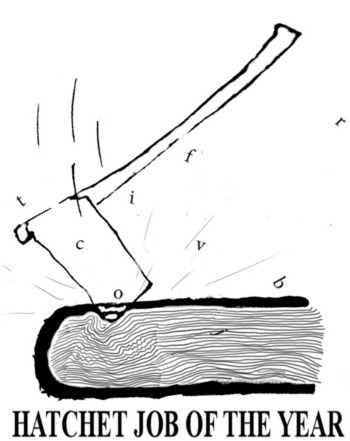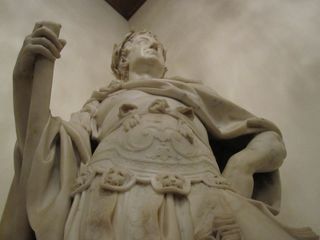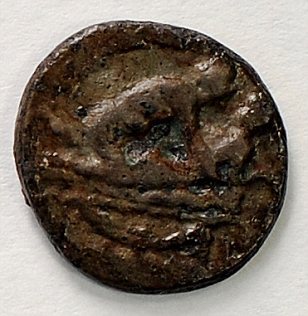Mary Beard's Blog, page 59
January 16, 2012
Leveson and Camillagate
I've just been reviewing a few books about the Queen (it being her diamond jubilee and a diamond quantity of books appearing to celebrate); and, as always, I've done way too much reading -- beyond and behind -- to get into the piece. In particular, I've been wondering how come we've all forgotten the Camillagate and the Squidgygate tapes.
Maybe these causes célèbres of the 1990s are now hardly a memory, but it's a bit odd that these bits of royal phone interception (if they were genuine) haven't played their parts in the Leveson Inquiry (unless I've missed it). Maybe that it because the conversations (between Di and J Gilbey, and Charles and Camilla) were apparently taped by amateur hackers -- or alternatively by the security services -- not by professional tabloid journalists (in this game, remember, "amateur" is always a bit of an alibi). Maybe it is all so long ago that most of us have forgotten.
I haven't forgotten.
That's because in the 1990s, I was teaching a Part II course in Cambridge. on "The Roman Emperor: construction and deconstruction of an image" -- for final year students in Classics and History. We did an awful lot of hard reading of ancient texts, But one of the things we also did was reflect on how the modern image of the monarch was (or was not ) the same as the ancient image of the Roman emperor.
The tapes of the (supposed) conversation between Charles and Camilla were particular grist to the mill. That's partly because they reflected that odd mixture of demotic and arcane speech which is often associated with monarchy. On the one hand, Charles (if it was he) was busy talking about being a tampax in Camilla; on the other he was speaking about Camilla beimg the victim of "calumny" -- a word that has not been used in ordinary conversation for at least a 100 years. You can nicely parallel that in the supposed first-person speech of Roman emperors: a mixture of demotic and the frankly arcane.
Anyway, I set a snatch of this in the final exam. The Classics Faculty examiners were fine with this. The History Faculty examiners insisted that the quote be labelled "the alleged conversation of HRH the Prince of Wales and Mrs Andrew Parker-Bowles".
I think it must count as the first 'official' publication of these unofficial tapes ever. Who says that Cambridge exams are behind the times?
January 12, 2012
Hatchet job of the year
I was chuffed earlier this week to find myself (or rather my review of Robert Hughes' book on Rome) on the shortlist for the "Hatchet job of the year" prize. Actually the name of the prize is a bit misleading. OK it's a good headline grabber -- and got hundreds more column inches than if it had been called "2011 Prize for Critical Journalism". But, as its manifesto makes clear, it's not actually a prize for skewering . . . it's for honest as well as entertaining book reviewing, that isn't afraid to go beyond deference, to call a spade a spade.
As far as my Rome review goes, I think I was just doing my job. I made it pretty clear that I am quite an admirer of Hughes, and loved his The Shock of the New. But the chapters of Rome that cover the ancient world (the bit I really know about) are so riddled with dreadful errors -- howler after howler -- that I had to speak up. The point of a review, after all, is that an informed critic should give an honest, professional evaluation of the . Many other books on the Hatchet shortlist are poetry or fiction, and there the nature of that evaluation is rather different. But in the case of Rome, it was facts pure and simple... mixing up BCE and CE, wrong dates, wrong names, all tumbling out one after the other...
I have never met Hughes, but if I were to have the pleasure, I would say just what I wrote to his face. And that has always been the ethical touchstone of a review. If you couldn't say it to the author, then it's a skewering, so don't.
But what gave my review an extra edge was that so many other reviewers showered it with praise. How could that have been? One awful possibility is that they did see a lot of errors but decided to cover them up, either because they were being dishonestly nice to Hughes, or because they thought that errors dont matter too much in a popular book (if so, I think I find the latter motive even worse than the former... it's even more important to be right in a popular than a specialist book). The other equally ghastly possibility is that they didn't themselves see the errors . . . which just shows how much you need a few classicists around, otherwise any old rubbish will get spouted about the ancient world and no-one will even get warned.
If reviewing doesn't act as a gate-keeper of sorts, the success of a book will come down only to the size of its publicity budget and the enthusiasm of its publishers' tweets. Hence the prize.
Anyway, I'm not expecting to win (there's some rapier like stuff on the short list). But the prize is unusually attractive: a year's supply of potted shrimps. The whole thing, you see, is run by the reviews website Omnivore, and shrimps are omnivores.
January 9, 2012
King Georges leave the University Library
I have been in the University Library for the first time in weeks - and, when you have a day there (cuts or no cuts) you do still feel wonderfully grateful for the books they have -- mad though some of them may be. In fact I have spent a very happy day reading some really loony and interesting stuff on Cicero's De Haruspicum Responso, none of it available on line -- so thank you, book librarians one and all.
But it was only on the way out that I noticed that something was going on in the front hall. There were barriers round one of the King Georges -- the statues that stand in the entrance way, and look down upon 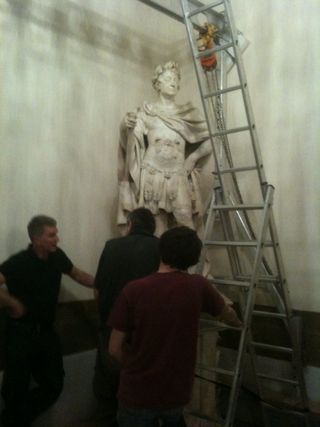 you as you return your books. These guys have become my very favourite statues in Cambridge, George the first and the second (one by Rysbrack, the other by Wilton): not just because they have observed me payimg my library fines for many a year -- but also because they are some of the best "English monarchs as Roman emperors" statues that there are. And they got walk on parts in my Washington DC lectures last year.
you as you return your books. These guys have become my very favourite statues in Cambridge, George the first and the second (one by Rysbrack, the other by Wilton): not just because they have observed me payimg my library fines for many a year -- but also because they are some of the best "English monarchs as Roman emperors" statues that there are. And they got walk on parts in my Washington DC lectures last year.
Anyway, I soon discovered that the barrier were not there because these things were about to be cleaned (first assumption), but because they were about to be moved out.
No longer will the Georges survey my library fines. They are, I am told, going to the Fitzwilliam Museum.
And I am bloody sad.
OK, I know the official reasons. More people will see them there (but actually anyone who wants can come and look at them in the UL hall); and they will be better conserved in the Museum (but actually they have done alright for a few hundred years without being in climatically controlled conditions.. and will they be climatically controlled in the Fitz? Doubt it.). But overall I guess that's fair enough.
But it's hard not to think that there is a modern agenda behind all this.. that somehow a pair of English kings dressed up as Roman emperors doesn't quite match the image that the new "post book" (and certainly "post-print-periodical") University Library wants to project to its "readers".
And, even on a less cynical interpretation, it's hard not to feel sad that we wont be greeted into the Library with a couple of great in-your-face works of art. (Isn't part of the PLEASURE of working in a place like Cambridge that you do actually meet antiques and antiquities in your day to day life, not just in museums).
OK, it 's probably true, as I think, that these statues were only transferred to the UL in the 1990s from the "Old University Library" (what was the Squire, and is now part of Caius), but that's not quite the point -- or at least it's only the very end of a long story.
Before the Fitzwilliam opened, the major repository for the University's works of art was the old UL. Almost all the stuff (including E. D. Clarke's great Eleusis caryatid) ended up eventually in the Fitz. These were a nice remembrance of the time when works of art were part of the culture of Cambridge, when you coud think of English kings as Roman emperors, and when statues belonged in the UL as much as computers.
And I shall miss them every time I walk in.
January 5, 2012
A Roman brothel token?
I was hoping to keep out of the story about the "Roman brothel token" found by a metal detectorist near Putney Bridge and now on display at the Museum of London. But I think someone had better give a different version from the torrent of lurid stuff now pouring out about the sex-life of Roman London.
The object in question is a small bronze "coin" -- with a scene of sex on one side and a the Roman numeral XIIII on the other. Assuming that it is genuine (and there are quite a few fakes of these circulating and this one was not actually found in an archaeological context), then it is what  archaeologists term a "spintria". This is a Latin word for male prostitute... but it is an entirely modern practice to apply it to these little objects; we haven't got the foggiest clue what the Romans called them... or (despite what you read) what they used them for. Quite a few have been found across the Roman world (there's another on the right).
archaeologists term a "spintria". This is a Latin word for male prostitute... but it is an entirely modern practice to apply it to these little objects; we haven't got the foggiest clue what the Romans called them... or (despite what you read) what they used them for. Quite a few have been found across the Roman world (there's another on the right).
The favourite idea circulating about this recent discovery is that it was part of the highly developed Roman brothel economy. Perhaps you handed over 14 asses (the coin not the animal, I mean), got the token and then went and redeemed it at one of the local brothels (a bit like a book token). Or maybe the sexual position depicted on the token was what you had paid your 14 asses for (shades here of the tour guides' explanations for the paintings of the different sexual positions depicted on the walls of the brothel at Pompeii ... a kind of visual menu for those who couldnt ask for it in Latin. Errr.. come again?)
Now, as there is no evidence for these things at all, no-one could actually disprove that. But remember that there is no Roman mention of such things, none have been found in any place that has been identified as a "brothel" . . . and just think of the kind of infrastructure of the ancient "brothel industry" that this kind of internal currency would imply. (Let's face it, most sex for money in the ancient world -- like now --happened at street corners, under bridges, after closing time at the bar... NOT in designated "brothels" . . . )
So what is a more likely explanation?
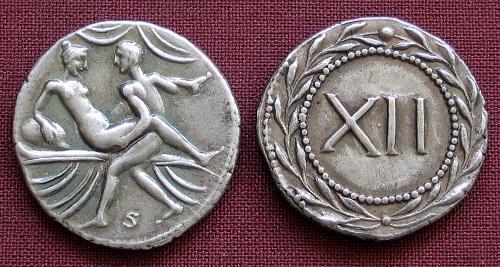
Well, first remember that just because something has a sex scene on it doesn't mean it was used for sex. That assumption has led to the discovery of 80 odd "brothels" in Pompeii (ie any room with a scene of sex on the walls....). But look at the Suburban Baths at Pompeii, there different sex scenes seem just to have been used as aide memoires for the different "lockers" in the changing room.
Almost certainly these were tokens whose main function was the numeral, and the sex scene on the back was 'decoration". One possibility would be an amphitheatre token, and the XIIII would indicate which entrance you were to use. But I doubt that any amphitheatre in Britain was so big as to need that kind of crowd management (though of course, being found by the Thames, this thing could actually have been brought back from Italy by some eighteenth century traveller who just accidentally dropped it by Putney Bridge on his way home).
More likely, if you ask me (and as the curator at the Museum of London concedes it might be so), is that it is a gaming token, for one of the many Roman board games... whose rules and customs were anyway shot through with sex (the best throw of the Roman dice was called a "Venus throw"). This belonged, in other words, on a board in a Roman bar, not in a brothel.
The trouble is that we just want the Romans to take us into the world of their brothels, and we want vicariously to enjoy their wicked sex lives. Though, in this case, there has been a politically correct, early 21st century twist added to the tale. After ogling at the Romans for a bit, many of the eager journalists (prompted by the Museum of London) have finally chosen to spare half a thought for the victims of the ancient sex industry. Don't forget, insisted the curator (correctly), that many prostitutes would be slaves. "It has resonance with modern-day London because people are still being sold into the sex trade."
True and terrible, but in most reports it only added to the prurient edge of the find.
December 31, 2011
Five thoughts on getting to 57
I am in a couple of hours 57 years old. My rather elderly (aged 40) mother gave birth, old-style, in Much Wenlock Cottage Hospital on 1 January 1955...with a midwife and the local GP, who (as he and Mum always used to joke, for years after) only got there when everything was more or less over. (This isn't just self obsession -- it's a story I heard repeated at the said GP's Xmas party for years and years in my childhood and adolescence... with greater or lesser shades of embarrassment, on my part)
So my birthday has always been (for me) a New Year occasion. And always bound up with New Year's Eve... everybody is pissed and enjoying the 'rite of passage' and at some point after midnight I nerve myself to say (or not to say) "and..errr.. excuse me..it's my birthday.
Anyway, at 57, happily and very very gratefully married for more than quarter of a century .. five thoughts on birthdays as you get old(er).
1) Bloody lucky (version 1). I am still alive, 57 years on. I've survived 2 children and various bits of medical intervention (including a benign breast lump/aka clot of milk, when I was breast feeding, and that seemed like imminent death at the time). Most of the people I work on (the Romans) were dead or dying by their late 50s. So thank the Lord, and modern medicine.
2) Bloody lucky (version 2). By immense good fortune, things have gone really well for me in the last few years, and I've done stuff that my Mum and Dad would never have dreamed of, though would have loved. Some of the little triumphs seem a bit silly. But I am really chuffed that I've been on Desert Island Discs, and Any Questions; and I've written books that colleagues have liked, as well as the "general public" .. I even got a book prize. And I now get offered more books to review, or radio programmes to make, than I could ever do (OK,in the great order of things, not a key indicator...not a big deal maybe, but when I think back 20 years, I would have felt it a huge success when anyone asked me to do anything like that.)
And let me say to any young female academic with a brood of kids, who thinks her career is going down the tubes..so was mine (as several of my more waspish male colleagues enjoyed saying) back then, a couple of decades ago...I hadn't written enough stuff; I had too few outcomes; and in fact people talked about the "tragedy" of my career. But stick in there; keep your name on the map; and dont let the buggers get you down. Don't, don't give up. And accept that offer to review a book...
3) Anxious. Well anyone my age is anxious about what happens next. One of my best mates said to me when he turned 60 that the bad thing was that after 60, any illness might be your last. And indeed it was almost true for him. He died almost a decade ago. So, lets face it, each visit to the doctor is more loaded now.
But I'm also interested in 'the media'. So far, with only a very few exceptions, they have been very kind to me. I have blathered on about the ancient world, and worse, and the critics haven't said 'oh for f....s sake, shut up'. But who knows what next? (I am just making a mini-series for BBC 2 that I hope you all like; but I'm on tenterhooks, honestly.)
4) Memories. When I was a little kid and asked what happened when you died, my Mum alway came out with the old cliché about 'living in people's memories'. It wasn't nearly good enough at the time, but I begin to see what she meant. For me, as for most of us I imagine, memory is a bigger and bigger thing, even in the fleeting, just-a-nod-to-it, sense. And that includes all kinds of stuff from school room trauma to long past, ancient passions -- in a way I would never have expected.
I still vividly recall all those unlikely and memorable sites of serious adolescent love with unserious (or wholly unsuitable) partners.. from Hawkestone Park to Rose Cottage, Ironbridge or the in-your-face rhododendrons at Attingham. Every day I find those guys,and those places, come through my head -- as my dead parents do, usually in a nicely teasing way. (I guess it never stops... years ago I reviewed a biography of Naomi Mitchison, and I called attention, with a degree of disbelief, to the moment when she made love to Wade-Gery in a snow storm outside Oxford; she sent me a card, aged 80 something, to say that it really was snowing that day.)
5) Humility. Obvious really...but when things are going well, just remember how different it might be, how easily.
And this I guess is the time to say that we plan another 'don's life book'. picking up where the last left off. Hope you'll all be on board, As I've said before, the commenters make this blog. Thanks everyone, and good luck for next year.
December 29, 2011
Truth, Kim Jong-il and Prince Philip
Truth, as everyone knows, is the first casualty of war. But it doesnt fare too well when monarchs and/or dictators die . . . or even, I suspect, when royals are taken into hospital.
For a start, the authorities never want to announce the death until they have got the transmission of power sorted. So when exactly Kim Jong-il finally fell off his perch, I suspect we will never know -- but it could have been some time before we were all told (the intervening hours being spent in getting Kim Jong-un briefed, and his lines learnt -- and in dealing with any of the other relatives who might have made trouble).
And we can't be certain about where he died either. Do we believe the story that he was on a train, going on one of his hard-working visits to his people? Or do believe the South Korean spies who say that the train never left the station (and that the train story was invented to conceal a much more mundane, less public-service, death at home in bed)? Or do we think that the spies were simply trying to discredit the enemy, by alleging a lie about the death location . . . Bluff and double-bluff.
And this kind of thing isn't just a problem across the "axis of evil". Remember that in 1936 King George V's doctor famously gave him a fatal dose of morphine (somewhere between euthanasia and convenience killing). It was not only to relieve his suffering and give him a more dignified end, but also (as the doctor himself apparently admitted) to make sure that the death and succession happened early enough to be announced in the morning Times, not in the far less prestigious and proper evening papers.
I couldn't help having some of this in the back of my mind when I was reading about Prince Philip's recent stay in hospital.
Happily, he now seems to be on the mend (even the most committed anti-royalist could hardly wish the old man dead). But some of the press releases sniffed of a bit of a cover-up to me. Why did almost all the royal family rush over to see him? Last time he was in hospital, it is said that none of them visited at all. So were they simply rushing over to take him his Christmas presents, before getting on with the business as usual celebrations at Sandringham? Or did they think that they had better go and say goodbye this time?
And what about the Queen being "briefed" about his progress? Maybe, I thought, that's how the royals do illness. She doesn't talk to him on the phone, she is "briefed"? But maybe, I reflected cynically, he's actually too ill to chat to the wife.
Anyway, the good news is that my suspicions were not quite on the button this time. But rest assured, when the final moment does come, the bulletins aren't going to be any different from what we've just had. They'd still be talking about how he wanted to be leading the Boxing Day shoot, even if he was in a coma.
And you know, of course, where this post is going to end. Yes, it was much like this in ancient Rome too. My favourite example comes from Livy's account of the death of King Tarquin the Elder (the fifth king of Rome): he was murdered, but his wife carefully covered up his death and pretended it was business as usual, until she had successfully ensured that power had passed to her son-in-law, Servius Tullius (Livy, 1, 39-41). Of course, Livy didnt have the foggiest clue about what had 'really' happened at the death of the semi-legendary Tarquin. But he knew how transmission of royal worked.
Come to think of it, the presentation today of Kim Jong-un to the soldiers and people doesn't look all that different from the launch (as Tacitus describes it, Annals 13, 1-4) of the new Emperor Nero in Rome in 54 AD.
December 24, 2011
Christmas tradition -- and innovation
"Tradition always incorporates innovation" insisted the daughter (an anthropologist-cum-historian) on Christmas Eve. The reason for her insistence on this great anthropological truth was her desire that this year we should try roasting rather than boiling the sprouts for Christmas dinner.
Predictably enough, we chose to follow that other anthropological model: namely, "accretion". The husband had liked our encounter with roast sprouts in the USA, but rather doubted our ability to do them well enough on our first try (and anyway, he is still quite partial to boiled ones). So -- as we had laid in well more sprouts than we needed -- we decided to roast half and boil half, just to be on the safe side. (I expect that we will now do this sprouting double act as long as we have Christmas together.)
At this point, I rather pretensiously observed that our decision followed the model of our Christmas  tree... it was growing tradition, a bit like the way we put new decorations on the tree each year, without throwing away the old ones. To be precise: a rather jolly hart (above), vaguely taken from the Wilton diptych joined the line up this year, as did a shining ship (on the right, supposedly based -- though I dont think you'd know just to look at it -- on Turner's Fighting Temeraire).
tree... it was growing tradition, a bit like the way we put new decorations on the tree each year, without throwing away the old ones. To be precise: a rather jolly hart (above), vaguely taken from the Wilton diptych joined the line up this year, as did a shining ship (on the right, supposedly based -- though I dont think you'd know just to look at it -- on Turner's Fighting Temeraire).
Conversation, let me reassure you, doesn't usually run along these lines over our kitchen table. But it was perhaps a nice reminder of what a wonderful anthropological case study modern Christmas can be. In fact a friend of mine who taught Anthropology in Cambridge often used to ask candidates at their interviews to comment anthropologically on Christmas. She was never very impressed by those who went on about the terrible 'commercialism' of it all; she was looking for a bit of analysis of our nostalgia, and the way the celebration (for many, no matter what religion -- if any) still acts as a re-affirmation of ties of friendship, a focus of remembrance, not to mention gift exchange.
Sadly, for me, it now acts as a focus of remembrance of her. She died a few years ago, but Sue's question to her candidates (as well as her whole-hearted, exuberantly atheistic investment in all the festivities of the season) is now always part of what I think when I "think Christmas". Exactly, she would have said. For that's the way that Christmas comes to mean more, the older you get...generating and preserving an ever increasing number of things to remember. (And I'm sure that's how she used to press her interview candidates.)
But Christmas isn't just a great case study for the anthropologically inclined. Classicists get a toe-hold in there too.
That's because, somewhere lurking behind our celebrations (though, in truth, the connections are a bit hard to follow) is the Roman festival of Saturnalia -- eventually a seven day holiday at the end of December; just like our Christmas break, it got longer as time went on. There's nothing a classicist likes doing better at this time of year than sounding off about the similarities and differences between our festivities and the Romans'. (I had a go here, but I suspect you may need to subscribe to Timesonline to see it all.)
The basic point is that the Saturnalia wasn't really a match for the over-consumption of Christmas dinner. That has a Roman feel in its own way (and I bet the Romans would have loved the ritual of lighting the brandy over the Christmas pud, if only they had had some convenient matches). Much more similar are the rituals of gift-giving, games and silly hats. And even more distinctive, is the idea of role reversal. For once a year, on the Saturnalia, Roman slaves are said to have sat down to dinner, served by their masters (noone is very explicit about who actually cooked it, but I suspect the slaves...).
It was in other words, almostthe spitting image of the classic "office party", in which the Managing Director makes a gracious display of serving the wine, while trying desperately and unsuccessfully to remember the names of all the lowly staff (thus rather ruining the point). Presumably the same problems emerged in ancient Rome, with the toffs repeatedly mixing up their poor Lurcios and their Pseudolus's.
Not sure if it counts as one of the better Roman inventions.
Happy Christmas everyone!
December 22, 2011
Is the Christmas card on its last legs
I rather like getting Christmas cards, which I put up lovingly all over the house -- on the mantlepiece, blu-tacked to the picture rail, under the tree. But I suspect that they are on their last legs, even more a thing of the past than a book.
That's to say, my tally of "e-cards" now almost exceeds my "card-cards". Some of these are wonderful. I just received a great Sophoclean Xmas card ("best wishes for a cathartic Christmas"), all beautifully drawn and scanned by one of my students (thank you, Sam). And some e-cards do include messages really targetted at me, with or without an appropriate image (thanks Gillian and Jan); or are sent from abroad, nicely timed for Xmas (and it was much better to get Estelle's up to date news from Australia, than have the old news of a month ago chugging its way across the world by ship).
What I hate are those e-cards sent by people or firms who just click "send to all" on their e-mail, and hey presto... you've got your Christmas message. It is one step on from the xeroxed "Christmas message" (nauseatlnglycelebrating young Quentin's 15 A*s at GCSE, or Tamsin's starring role in The Importance of Being Earnest).
The trouble is that, with an email, you don't end up with anything you can put on your mantlepiece, and if -- like me -- you run at the very edge of your capacity, it really clogs up your inbox. But worse, these mass e-mails simply negate the whole point of the card-ritual. Whether tatty and gaudy, or at the very pinnacle of "good-taste", Christmas cards are largely about the process of taking the trouble to do it. I have people I knew and loved, once upon a time, and the way we know that we still remember each other is because we sit down once a year, choose a card, write something on it, stick a stamp on and take it to the letter box.And that's because it takes a bit of an effort -- not simply clicking on "send to all". And why it makes a difference, in human terms, is because we know that's what has gone behind the card that plops through the letter box.
But not much longer I suspect. If I was an investor, I wouldn't take out shares in a Christmas card company.
December 20, 2011
Juliet's balcony
Tourist hot-spots come in many different guises. Only a couple of weeks ago the queue to get into the Colosseum was about an hour and a half in length -- and all to see the rather depressing ruins inside the building which are nothing compared with the splendid outside. (Tip: if you really want to see the Colosseum, go to one of the entrances to the Forum and buy the ticket there.. the queue is never so long.)
In Verona, where we finished our stint of filmimg yesterday (not the amphitheatre, in case you are wondering), the place to go is the "House of Juliet", complete with balcony, as in Romeo and Juliet. There were no actual queues, but a tremendous, polyglot crush, even in mid December -- made all the more democratic by the fact the view of the balcony and other bric-a-brac is free. You only have to pay  if you want actually to go and stand on it, and to see the other Juliet memorabilia in the 'museum'.... pride of place going to the bed that starred in the Fellini's version of Shakespeare's play.
if you want actually to go and stand on it, and to see the other Juliet memorabilia in the 'museum'.... pride of place going to the bed that starred in the Fellini's version of Shakespeare's play.
Of course, the place has nothing to do with the non-existent Juliet at all, and was a clever invention of the 19th century, turned into a veritable tourist attraction in the 1930s. But overall it is as odd as the Colosseum, with the added tinge of slightly off-putting, slightly leering, slightly touching "romance".

One highspot of the museum itself for most people is the opportunity to send an email (or even an old-style letter) to Juliet, who -- it seems -- will answer you (unless you are too filthy in what you choose  to say to her). Indeed it appears that they have a whole team of people employed just to answer the emails that Juliet receives in the 'Club Juliet'.
to say to her). Indeed it appears that they have a whole team of people employed just to answer the emails that Juliet receives in the 'Club Juliet'.
But if you cant afford the 6 euros to go inside, there is still plenty to do. The wall of the entrance-way to Juliet's House are covered with the graffiti of at tleast the last 3 to 4 years of hopeless romantics - as if scrawling your name in the vicinity of  a mythical balcony of a mythical couple somehow gives it added force. That's me with the wall of names.
a mythical balcony of a mythical couple somehow gives it added force. That's me with the wall of names.
But the weirdest thing was the 1970's bronze statue of Juliet standing just underneath the balcony. It was clear from the 'polish', and by watching what people actually did, that one hallowed custom was to go up and grasp Juliet's right breast, and have your photo taken in the act. This was the sport of  almost every visitor from the seven year olds to the seventy-something., male and female. A few looked
almost every visitor from the seven year olds to the seventy-something., male and female. A few looked  a bit embarrassed. Most entered into the spirit of the fondle.
a bit embarrassed. Most entered into the spirit of the fondle.
A new ritual, a bit tacky -- but bringing the star-crossed lovers down to size.
December 16, 2011
Coffee solution
I've been living out of a suitcase for the last ten days (and blogging from hotel rooms -- on hotel wi-fi, not always the best for inserting big pictures or managing links; sorry). One thing I've solved, though, is the hotel "coffee for breakfast" problem.
The issue is this. You want to get up early and work, but there are no coffee-making facilities in the room -- and if there are, the resulting coffee is truly ghastly. So the only options are: a) to go down to the hotel restaurant (but that demands getting dressed) or b) order room service in advance (but that means predicting the night before when exactly you are going to need the caffeine injection, and also you have to deal, scantily clad, with the waiter ) or c) order room service when you wake up (but by then room service is busy and you can be busting for a coffee for a long time -- and there's the same problem re the waiter). Not to mention the fact that the coffee in all these cases may still not be much better than dishwater.
Anyway, thanks to my friend (really thank you C), problem is solved.
This time I packed in my suitcase a small sized, electric espresso maker, a tin of ground coffee, and when I got to Rome I nipped out to buy half a litre of milk which I managed to squeeze into the mini-bar. So I've been filling it with coffee and water each evening and just switched it on when I have woken up the next morning. And hey presto.
It hasn't actually been entirely trouble-free. For a start, the plug on the coffee machine is that slightly larger size of the European two-pin plug, while the socket in the hotel is that slightly smaller Euro size (does anyone else have this trouble?). This means that it is a bit of a struggle getting the plug plugged in. Then, you have to make sure to disconnect the machine straight after the coffee has been made, because it goes on heating up and producing a decidedly pungent burned coffee smell (enough to be accused of smoking in a non smoking hotel room)..and it gets very hot.
But, that apart, this little gadget has solved the morning coffee problem.
A great Xmas gift idea for the lonesome traveller.
Mary Beard's Blog
- Mary Beard's profile
- 4114 followers



